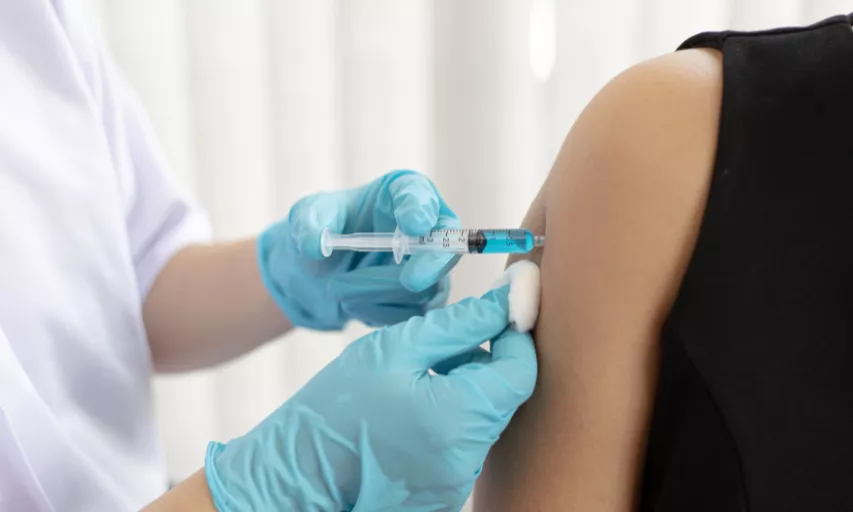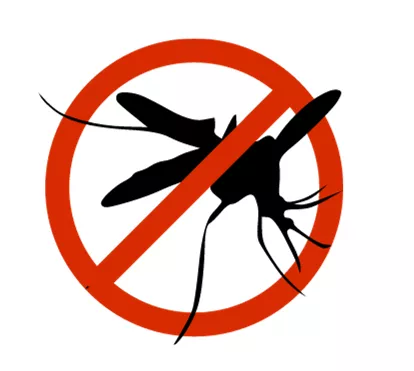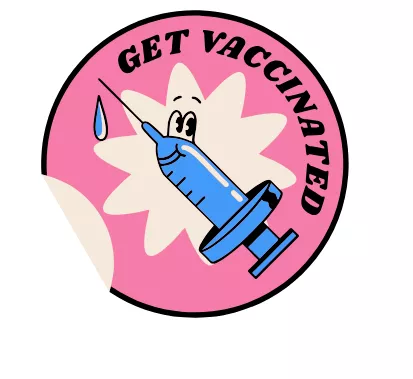A New Vaccine Is Approved for RSV: What Are the Anticipated Concerns?
July 19, 2023
 The U.S. Food and Drug Administration (FDA) approved new vaccines to protect against serious complications from infections from respiratory syncytial virus (RSV). These vaccines, one manufactured by the drug company GSK with the brand name Arexvy and the other by the drug company Pfizer, are for people aged 60 and up. Another approval is anticipated for the vaccine against RSV made by Pfizer to be administered to pregnant people to protect newborns against RSV. Given the increased amount of anti-vaccine sentiment voiced throughout the internet and social media, it is important to anticipate potential concerns that may be raised about the RSV vaccines. Three inevitable questions are 1. Do we need RSV vaccines? 2. Do RSV vaccines work? and 3. Are RSV vaccines safe?
The U.S. Food and Drug Administration (FDA) approved new vaccines to protect against serious complications from infections from respiratory syncytial virus (RSV). These vaccines, one manufactured by the drug company GSK with the brand name Arexvy and the other by the drug company Pfizer, are for people aged 60 and up. Another approval is anticipated for the vaccine against RSV made by Pfizer to be administered to pregnant people to protect newborns against RSV. Given the increased amount of anti-vaccine sentiment voiced throughout the internet and social media, it is important to anticipate potential concerns that may be raised about the RSV vaccines. Three inevitable questions are 1. Do we need RSV vaccines? 2. Do RSV vaccines work? and 3. Are RSV vaccines safe?
Why Do We Need Vaccines Against RSV?
RSV usually causes mild symptoms like runny nose, fever, coughing, sneezing and decreased appetite, even in babies and older adults. Very young babies, however, may only show decreased activity, irritability, and breathing difficulties. By age two, almost all of us have been infected with RSV.
Some newborns and elderly people, however, can develop severe illness from RSV infection and even die. Because most cases of RSV infection are mild and resolve on their own in a week or two, it is difficult to put a denominator to the total number of RSV cases; most go undiagnosed and unreported. Hence, calculating the actual exact rate of serious illness and death from RSV is problematic. In a paper published in the Journal of the American Medical Association (JAMA) in February 2022, investigators looked at over 50 million death certificates recorded in the U.S. between 1999 and 2018. They estimated there are 6549 annual respiratory deaths from RSV in the U.S., mostly in children under one year of age and adults over 65. The U.S. Centers for Disease Control and Prevention (CDC) estimates that there are 57,000 hospitalizations among children under one year of age for RSV infection every year, with approximately 100-500 deaths per year. Globally, one study estimated that there are over 100,000 annual deaths in children under five attributable to RSV. Among adults, CDC estimates approximately 177,000 annual RSV-related hospitalizations and 14,000 deaths. Hence, while there is variability in the estimates of how many Americans die from RSV and fixing a rate of death per case of RSV infection is nearly impossible, it is clear that a substantial number of infants and older adults get very sick with RSV and some do not survive the infection.
RSV infection itself does not produce a strong enough immune response to protect against reinfection. A vaccine to protect infants and older adults from serious illness and death from RSV infection thus seems clearly warranted, but only, of course, if that vaccine is effective and safe.
Do the New RSV Vaccines Work?
The basis for the FDA approval of the GSK vaccine for older adults and the impending approval of the Pfizer vaccine for pregnant people rests on two studies, both published in the New England Journal of Medicine.
The study of the GSK vaccine in adults 60 and older published last February enrolled 24,966 participants who were randomized to receive either the GSK vaccine or a placebo. Compared to placebo, the vaccine reduced the chances of developing RSV-related lower respiratory tract disease, such as bronchitis and pneumonia, by 82.6% and reduced the chances of severe RSV-related lower respiratory tract disease by 94.1%. The approved vaccine by Pfizer offered similar protection, although the GSK and Pfizer studies varied in a number of ways and therefore we cannot simply compare efficacy rates between them. Both vaccines seem to offer protection for up to two years.
Newborns do not mount a vigorous immune response to many vaccines in the first month of life and therefore are protected against infectious diseases by antibodies transmitted from parent to fetus during the later stages of pregnancy. For that reason, in order to protect a newborn from RSV in the first few weeks of life when the baby is most vulnerable to the serious complications of infection it is necessary to vaccinate the pregnant parent so that antibodies they generate can be passed to the baby before birth. In the infant RSV vaccine study, published last April, 3682 “maternal participants” received the Pfizer vaccine and 3676 received placebo. Investigators then assessed the occurrence of RSV-related illness in the participants’ newborn babies up to 180 days after birth. The vaccine reduced the risk for severe lower respiratory illness in the babies by 81.8%.
Once again, although RSV infection is usually no more severe than the common cold, in high-risk groups like newborn babies and elderly adults it can be deadly. The results of these two studies, plus other research, show that the new RSV vaccines are very effective at preventing serious illness. It is important to note that the vaccines will probably reduce the risk of getting RSV infection at all, but that was not the subject of these studies and as is the case with vaccines against other viral illnesses, like influenza, some vaccinated people will still get infected with RSV. The important point to remember is that even if infected, the risk of getting seriously sick, needing to be hospitalized, or dying from RSV will be significantly reduced by the new vaccines. The next important issue is whether the vaccines are safe.
Are the New RSV Vaccines Safe?
In the adult study, the GSK vaccine caused the usual vaccine-related adverse side effects like pain at the injection site. There were no serious adverse events that occurred more frequently in the vaccine group than in the placebo group.
However, the FDA in its announcement approving the vaccine for older adults made the follow comment:
In two other studies, approximately 2,500 participants 60 years of age and older received Arexvy. In one of these studies, in which some participants received Arexvy concomitantly with an FDA-approved influenza vaccine, two participants developed acute disseminated encephalomyelitis (ADEM), a rare type of inflammation that affects the brain and spinal cord, seven and 22 days, respectively, after receiving Arexvy and the influenza vaccine. One of the participants who developed ADEM died. In the other study, one participant developed Guillain-Barré syndrome (a rare disorder in which the body’s immune system damages nerve cells, causing muscle weakness and sometimes paralysis) nine days after receiving Arexvy.
The FDA panel of outside experts that evaluated RSV vaccine safety also heard about two cases of Guillain-Barré syndrome that were observed in elderly adults who received the Pfizer vaccine, both of whom recovered. The rate of Guillain-Barré syndrome from the Pfizer vaccine was calculated at 1 in 9000, which is greater than the expected rate of 1 in 100,000 in the general population.
The rates of these serious neurological complications were considered by the FDA to be low enough to warrant approval of the GSK and Pfizer vaccines. The companies will be required to monitor vaccine recipients for the emergence of serious adverse side effects once the vaccines become available to the public, which could be as early as this summer.
It is possible that some will note the occurrence of Guillain-Barré syndrome in older adults from the GSK and Pfizer vaccines, which clearly concerned some members of the FDA’s expert panel, as reasons to avoid vaccination. Although most people recover from Guillain-Barré syndrome, that recovery can be slow, and some people have long-lasting weakness and other neurological symptoms. Given the very low numbers of Guillain-Barré syndrome cases actually observed in the older adult RSV vaccines studies, however, we cannot be sure if they were the result of the vaccine or would have occurred even if no vaccine had been given. It is safe to say that studies so far indicate that the risks of getting seriously ill with RSV if infected are greater than the risk of Guillain-Barré syndrome, which is why the FDA moved to approve the GSK and Pfizer vaccines for older adults as well. However, the risk of Guillain-Barre syndrome is the major reason that the FDA and CDC decided that people need to seek the advice of their healthcare providers before being vaccinated against RSV. For some people the risks of the vaccine could outweigh potential benefits.
No cases of Guillain-Barré syndrome are reported for the pregnant people who received the Pfizer vaccine in the study discussed above and once again adverse events were similar in the vaccine and placebo groups in that study. One death occurred in a newborn in the study 120 days after birth that was judged to be associated with RSV infection in an infant whose mother had received placebo.
In the study in which the vaccine was administered to pregnant people in order to protect their newborns from serious RSV-related illness, there was a slightly higher occurrence of preterm birth in the group that received the vaccine (28 cases or 0.8%) compared to the group that received placebo (23 cases or 0.6%), but the difference was not statistically significant. However, an independent advisory committee that evaluated vaccine efficacy and safety for the FDA was concerned about another study conducted by the drug company GSK in which a significant increase in preterm delivery was reportedly observed with the vaccine. It is likely that if the FDA approves the Pfizer vaccine for pregnant people, which is expected at the time of this writing, it will require careful monitoring of premature delivery occurrences.
FDA approval is only one step in making new vaccines actually available to administer to people. The next step is approval by the U.S. Centers for Disease Control and Prevention (CDC). On June 21 a CDC advisory committee recommended that RSV vaccines “may” be given to people aged 60 and up after consultation with their healthcare providers to determine if it is best for them. Reportedly, the committee members were concerned that there were few people over the age of 80 in studies of either the GSK or Pfizer RSV vaccines, the age group most likely to be stricken with serious complications. The committee members also expressed concern about Guillain-Barre syndrome. CDC director Dr. Rochelle Walensky has accepted the committee’s recommendation and both the GSK and Pfizer RSV vaccines should be available to people aged 60 years and up after they have consulted with their personal healthcare providers this fall.
We can conclude that the answers to our three questions are all yes: RSV vaccines are needed for pregnant people to protect their newborns and for elderly adults; RSV vaccines work; and RSV vaccines are safe as far as we know now from available studies, but the risk of Guillain-Barre Syndrome could make the RSV vaccines problematic for some of the elderly adults now eligible to have them. Therefore, it is important to follow FDA and CDC guidance and seek the input of a healthcare provider before having an RSV vaccine. If the Pfizer vaccine is approved for pregnant people, it will be necessary to conduct surveillance to ensure that it is not associated with preterm birth. It is important that we use this information to anticipate objections to the vaccines and help people in both categories—pregnant or elderly—understand the importance of getting vaccinated.
Related Posts

Anti-Vaccine Advocates Outpace Public Health Action
Posted in Vaccines
Concerns about a possible outbreak of the avian influenza virus H5N1, or bird flu, continue among scientists and public health authorities, even though the risk of human-to-human transmission remains...

Mosquitoes Are Winning, But There May Be Solutions
Posted in GMOs
Mosquitoes are the most deadly animal out there. What are some new ways that we're trying to eliminate this threat?

Engaging with Anti-Science Acolytes: Is it worth it?
Posted in Vaccines
Is it worth engaging with anti-vaccine acolytes, especially celebrities who hold these views? The path forward is not always clear.